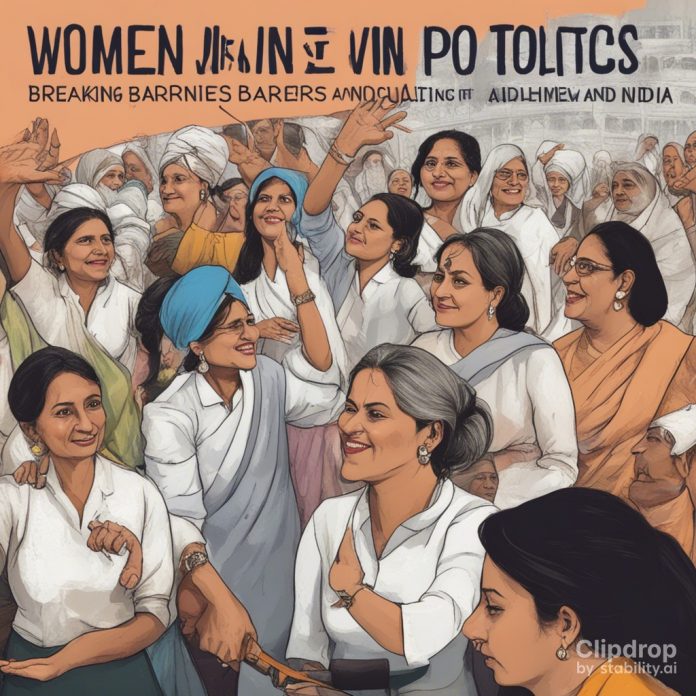Introduction
In the realm of Indian politics, the emergence of women in prominent roles has been a remarkable and transformative journey. Over the years, women have shattered glass ceilings, defied societal norms, and proven their mettle in the male-dominated arena of politics. This blog delves into the inspiring stories of Indian women who have not only broken barriers but also played a pivotal role in shaping the nation’s political landscape. It explores the challenges they face, the progress made, and the road ahead towards achieving true gender equality in Indian politics.
Historical Perspective
Historically, Indian politics was largely dominated by men, and women were often relegated to the background. However, there were notable exceptions, such as Indira Gandhi, who served as India’s first female Prime Minister and was a prominent figure in global politics. Her leadership during a tumultuous era left an indelible mark on the nation.
Challenges Faced by Women in Indian Politics
- Patriarchal Mindset: One of the most significant challenges women face in politics is the deeply ingrained patriarchal mindset prevalent in Indian society. Women are often met with skepticism and resistance when they enter the political arena.
- Lack of Representation: The representation of women in the Indian Parliament and state legislatures has been disproportionately low. Despite constituting nearly half of the population, women’s presence in political decision-making bodies remains inadequate.
- Violence and Discrimination: Female politicians are susceptible to gender-based violence and discrimination, both within and outside their political parties. This deters many women from actively participating in politics.
- Societal Expectations: The traditional expectations of women as caregivers and homemakers often clash with the demanding nature of political life. Balancing these roles can be daunting for women in politics.
Inspiring Women in Indian Politics
- Mamata Banerjee: The Chief Minister of West Bengal, Mamata Banerjee, has been a trailblazer in Indian politics. Her relentless pursuit of social justice and women’s empowerment has earned her a prominent place in the political landscape.
- Nirmala Sitharaman: As India’s first female Finance Minister, Nirmala Sitharaman has been a key player in shaping the country’s economic policies. Her role has broken stereotypes and set new standards for women in politics.
- Mayawati: Mayawati, a four-time Chief Minister of Uttar Pradesh, has consistently championed the cause of marginalized communities and women. Her rise from humble beginnings is a testament to the potential for change in Indian politics.
- Smriti Irani: From a television actor to a Union Minister, Smriti Irani’s journey in politics has been nothing short of remarkable. She has been an advocate for women’s rights and education reform.
Progress Made and the Road Ahead
India has made significant progress in promoting women’s participation in politics. The 73rd and 74th Amendments to the Constitution mandated 33% reservation for women in local government bodies. This move has led to increased female representation at the grassroots level. Additionally, political parties are increasingly recognizing the importance of fielding women candidates.
However, there is still much work to be done. To achieve true gender equality in Indian politics, several steps can be taken:
- Implement Quota in State Assemblies: Extending the reservation for women to state legislatures and the Indian Parliament could significantly boost female representation at higher levels of governance.
- Sensitization and Awareness: Society needs to be sensitized to the importance of women’s participation in politics. Campaigns that challenge gender stereotypes and encourage women to enter politics can make a substantial impact.
- Support Systems: Providing support systems for women politicians, such as childcare facilities and protection against harassment, can help them balance their roles effectively.
Conclusion
Women in Indian politics have come a long way in their journey towards breaking barriers and achieving equality. Their contributions have been instrumental in shaping the nation. However, the road to true gender equality in politics is still under construction. It requires a concerted effort from society, political parties, and policymakers to ensure that women have an equal stake in the country’s governance. As more women rise to leadership positions, India’s political landscape will become more inclusive and representative of its diverse population.

